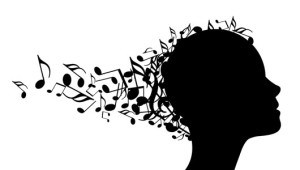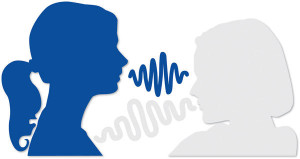My Epilepsy Story
I recall the day I had my first seizure very well. I was walking into the room where a school-wide mass was taking place when suddenly, as the music began, I became very anxious. Everything seemed to be in slow motion – even the music slowed down and I started to shake. I did everything I could to continue standing but the pain was too great. I slowly dropped to the floor. At one point, I thought I was dying (I thought this was the end). I woke up to the comforting smiles of my middle school’s vice-principal and nurse. My body was physically drained. They told me I had a seizure.
What was a seizure? For someone who had no bad medical history, why me? The shock of the diagnosis of Epilepsy was a bit overwhelming in and of itself, but then I had to learn all about it. All of it seemed so surreal. Over the next two years I went through countless seizure-drug combinations, some of which drastically changed my mood. At one point, brain surgery was discussed.
I was already struggling with anxiety but the diagnosis only made things worse. I constantly would wonder “When would my next seizure happen?” I was terrified. Seizures didn’t just affect me physically, they affected me emotionally and socially. During Middle School, I was nervous when I wasn’t around an adult. Also, I felt other students didn’t really understand me, some were even scared to have me around. There was always a sense of guilt and that I just caused ‘extra work’ for everyone; often I just wanted to disappear.

In the 9th grade I starting to become very socially withdrawn and didn’t feel accepted. I began to spend more time composing and engineering music, whether it be in the hospital, my room or a local studio. I caught a break and started working with major songwriters and recording artists, while continuing school. Throughout high school, I only had a few people I could confide in. There aren’t a lot of people who will understand those daily struggles. Most never saw the tears or the endless nights in the hospital.
When I graduated June 2014, my seizures were finally controlled by medication. I recently started college, focusing on graphic design, while continuing on music collaborations. I consider myself extremely blessed to have had great support from family, teachers, doctors and school nurses.
My dream is to create a career in the arts, one that will help inspire other struggling artists to persevere and push beyond the seemingly hopeless circumstances they sometimes face in life.
Growing-Up With Epilepsy and Learning to Speak Out at School and in the Workplace
Epilepsy is difficult to explain, describe and understand. People can only “see” epilepsy when someone is having a seizure. For many people with epilepsy, seizures are unpredictable and, sometimes, undetectable to others. In my case, most of my seizures have been tonic-clonic, or grand-mal, seizures. Tonic-clonic seizures are hard to miss. However, unless I’m having a violent seizure, no one would know I have epilepsy, until I open my mouth. I talk a lot about my epilepsy. Communicating with others about my epilepsy keeps me safe and helps me take control. As a person with epilepsy, I force myself to keep an open and honest dialogue with all of my medical professionals, my peers and my work colleagues.
I was five when first diagnosed with epilepsy after having absence, or petite-mal, seizures. At the time, I did not mind the epilepsy diagnosis because my seizures were not visible to me. Then, I learned I had to take monthly blood tests…with needles! I dreaded blood tests and I did not go softly or quietly into the pathology lab. It was stressful for me; every time I knew I was getting another blood test I would start crying and screaming. Finally, a lab technician took a moment to speak with me. I expressed to him my fear of needles. He offered to take my blood with a smaller needle he called a “butterfly,” and it would not hurt as much. I agreed to cooperate calmly. One conversation changed my entire attitude towards blood tests and my behavior at the lab. The recommended “butterfly” needle might have reduced the physical pain, but in hindsight, it was the technician who calmed me down by communicating with me and addressing my fears. At the age of six, I found power and control by openly communicating with all of my doctors and medical professionals.
 My first tonic-clonic, or grand-mal, seizure happened when I was in junior high school. Epilepsy is a difficult thing to openly discuss, especially during those awkward adolescent years. After many in-class seizures, I realized it was difficult and scary for my peers to witness one of my seizures. So, I took responsibility, and talked openly about my epilepsy. There were some students who used my epilepsy as a way to bully and tease me. A few kids called me “seizure girl.” I endured other unpleasant instances of bullying targeted at my epilepsy. Fortunately, I did not care about the opinion of those who bullied me. They did not want to communicate; they wanted to attack.
My first tonic-clonic, or grand-mal, seizure happened when I was in junior high school. Epilepsy is a difficult thing to openly discuss, especially during those awkward adolescent years. After many in-class seizures, I realized it was difficult and scary for my peers to witness one of my seizures. So, I took responsibility, and talked openly about my epilepsy. There were some students who used my epilepsy as a way to bully and tease me. A few kids called me “seizure girl.” I endured other unpleasant instances of bullying targeted at my epilepsy. Fortunately, I did not care about the opinion of those who bullied me. They did not want to communicate; they wanted to attack.
My seizures were controlled during high school. Although my epilepsy wasn’t visible, my parents and doctors strongly encouraged me to continue to disclose my condition. I often had to explain to friends I did not go to concerts because most concerts have strobe lights, a trigger for seizures. After I turned sixteen, I knew communicating my health issues was a legal and ethical responsibility as a licensed driver. I was becoming an adult and I needed to learn to talk about my epilepsy independently from my parents and pediatric doctors.
In my early twenties, I started having seizures, again. I was new to the New York City workforce and I knew little about how to talk about my disorder in the workplace. I never knew when to disclose my condition or who to disclose my condition to. As an adult, communicating about epilepsy, or any disability, in the workplace can be a grey area. I did not know if I should mention my epilepsy before or after I interviewed for a new job. Most companies do not encourage people to ask others their health issues, due to privacy laws. At twenty-seven, my epilepsy was uncontrollable and I needed to change my medications (AEDs). At the time, I was having seizures at work and felt devalued as an employee, even though I had a better attendance record than many of my colleagues. In fact, I had a superior criticize me via email for not drinking and socializing at an after-hours company event. I realized the people I was working with did not want to communicate openly and honestly about my epilepsy. Like the bullies in junior high, I stopped communicating with them. Instead, I communicated with my doctors and a lawyer. I filed for the Family Medical Leave Act. This provided me some short-term job protection. It also gave me a chance to stand up for myself against employers and colleagues who tried to exploit my condition as a weakness. My epilepsy is a neurological disorder, not a weakness.
I am still figuring out the best way to live and work openly as a person living with epilepsy. Luckily, I have connected with the Epilepsy Foundation of Metropolitan New York to learn more. The EFMNY provides tools to help facilitate communication and understanding about epilepsy. It provides New York City’s only specialized job development and vocational services program for people with epilepsy. Few people understand epilepsy and epilepsy’s far-reaching effects on a person’s life. So, as a person with epilepsy, I find it easier to tell others about my condition. People are sometimes afraid to ask questions about a disability or condition out of fear of being offensive or sounding stupid. So, I try to beat them to the punch and talk about my epilepsy first. It is important to help educate, explain and remove the stigma. I will never have complete control over my epilepsy, but I have complete control over my conversations about epilepsy.
-Alexandra DeBourcy, Mrs. Gotham City
